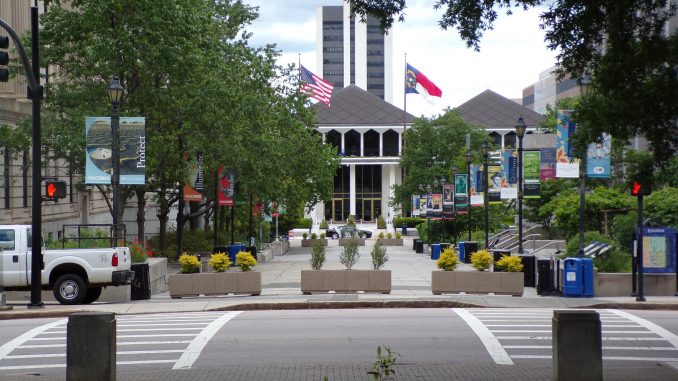
RALEIGH — The General Assembly’s House Rules, Calendar and Operations Committee discussed and approved multiple election-related bills during a Nov. 17 meeting.
The three main bills discussed were Senate Bill 326, Election Day Integrity Act; Senate Bill 724, Expand Access to Voter ID & Voting; and Senate Bill 725, Prohibit Private Money in Elections Admin.
Sens. Ralph Hise (R-Mitchell), Warren Daniel (R-Burke) and Paul Newton (R-Cabarrus) are primary sponsors on all three bills.
Senate Bill 326 was passed by the House on Nov. 18 and was sent to Gov. Roy Cooper for signature the same day. Senate Bill 724 is still making its way through committees, but Senate Bill 725 was passed by the House along partisan lines on Nov. 18 and has been sent to the Senate to consider.
The Election Day Integrity act seeks to require all completed applications and marked mail-in absentee ballots be returned to the county board of elections by 5 p.m.* on election day, regardless of postmark dates. The bill would also require both county and state board of elections to publish the dates that mail-in absentee ballots become available and when completed mail-in absentee ballot request forms need to be submitted by a county board of elections.
Additionally, county boards of elections will have to submit reports to the state board with totals of spoiled absentee ballots, outstanding absentee ballots, counted absentee ballots and voted provisional ballots. The state board would then be required to make the report public on its website.
Expand Access to Voter ID & Voting seeks to do just what its title implies, including helping the visually impaired cast absentee ballots through a state-run online portal and helping citizens register and update their voter records online. It also has a provision for a fund to be set up by the legislature to run a program to identify and help voters who need a photo ID to vote in person. That provision was removed with an amendment during the meeting.
Prohibit Outside Money in Elections Admin. would prohibit state and county boards of elections, as well as county boards of commissioners, from accepting private funds or donations, either directly or indirectly, with regard to hiring individuals on a temporary basis or in the processes of conducting elections.
North State Journal recently reported on outside money in North Carolina’s 2020 elections that came from the Schwarzenegger Institute. The former California governor’s organization dropped almost $190,000 into 10 counties prior to the November 2020 election.
Jackson and Surry counties rejected the offer and Hertford County’s total remains unknown, but the known amount accepted by counties in the state was $116,624. The combined worth of the funds to the two counties rejecting the funds was around $72,390.
Mark Zuckerberg’s Facebook, through its Center for Tech and Civic Life (CLTC), funneled over $419 million into states during the 2020 election. The cash went to upwards of 2,500 counties in 49 states, many of which showed increased voter turnout, and specifically increased Democrat turnout, reducing Republican vote margins.
In all, 35 North Carolina counties appear to have received CLTC funds in 2020. The state overall received over $5.395 million. Most grants were under $100,000, but two counties, Wake and Durham, received large sums. Wake received a million and Durham received over $1.46 million.
A fourth bill, House Bill 259, was added at the last minute to the House Rules, Calendar and Operations Nov. 17 meeting agenda. The bill was originally filed in March and was titled “Protect Voting Systems/Foreign Interference and sought to require all voting machines used in the state be made in the United States and by U.S. owned companies. A preferred committee substitute (PCS) was filed on Oct. 6 changing the bill’s name to the Election Integrity Act and added to the contents of the bill.
Protect Voting Systems/Foreign Interference includes several provisions such as requiring jurors to be U.S. citizens, various jury-duty excuse powers for courts, as well as creating a process for maintaining voter rolls that would remove non-citizens from jury pool lists.
House Bill 259 passed the House on Nov. 18 without a single Democrat member voting for it. The bill was sent to the Senate where it passed a first reading and was referred to the Senate’s Committee on Rules and Operations.


